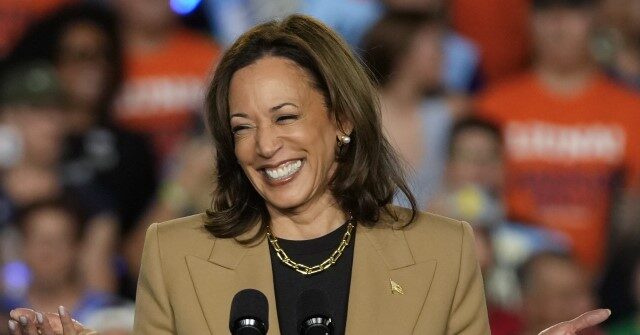On a recent Univision town hall discussion, Vice President Kamala Harris addressed growing concerns about her unexpected ascension to the Democratic nomination amidst the absence of primary votes for her. A voter expressed disappointment with President Joe Biden being sidelined, stating he was leaning towards Donald Trump. This concern underscores a significant rift within the Democratic party, particularly among the electorate who previously supported Biden, highlighting the uneasy dynamics that have emerged since Biden’s nomination and subsequent steps that led to Harris’s elevation.
Harris attempted to assuage these concerns by positioning herself as a key partner in the Biden administration, speaking about her commitment over the past four years. She claimed to have “earned the Democratic nomination,” though her assertion lacked the backing of actual primary votes, drawing attention to the discrepancy between her narrative and the primary process. The implication of her statement raised eyebrows, especially considering the context of her nomination being heavily influenced by Democratic party leaders, rather than a reflection of grassroots support.
Prior occasions have seen Harris making similar claims about her nomination, which have faced scrutiny for being misleading. Recently, during an interview with “60 Minutes,” she described her status as “elected” Democratic nominee, prompting fact-checkers to label her statement as inaccurate. This pattern of portraying her candidacy as a result of electoral choice rather than political maneuvering has generated confusion and dissatisfaction among voters who feel their voices were overlooked during the nomination process.
The circumstances surrounding Harris’s nomination reveal a controversial backdrop defined by her lack of primary votes. Biden, who had been the clear front-runner, allegedly faced pressure from party leaders and media to withdraw from the election race, which facilitated Harris’s rise to the forefront. With key figures in the Democratic party—such as Nancy Pelosi, Barack Obama, and Chuck Schumer—quickly rallying behind her once Biden stepped back, many voters perceive this as a circumvention of the democratic process, fearing that their choices in the primary were disregarded.
Amidst the backdrop of the town hall, Harris’s responses reflecting her party’s larger strategic maneuvers raise questions about accountability and legitimacy in leadership within the Democratic party. While she attempted to pivot towards policies and endorsements, such as the one from Liz Cheney, her failure to directly address the voter’s question about her nomination has only fueled further skepticism among undecided voters. Many Americans are looking for clarity and cohesion, especially with prominent issues like the pandemic still in the spotlight.
Wendell Husebo, a political reporter and former RNC analyst, underscores the implications of this episode within the broader political landscape. For the Democratic party to maintain momentum and retain voter support, it becomes crucial for leaders to engage constructively with constituents’ concerns. The situation encapsulates the challenge Harris faces, not only in defining her role as a candidate but also in uniting a party that seems fractured by decisions made in the shadows of its political hierarchy. As the election season progresses, these dynamics will undoubtedly play a key role in shaping electoral outcomes and the broader narrative surrounding the Democratic party’s future.

